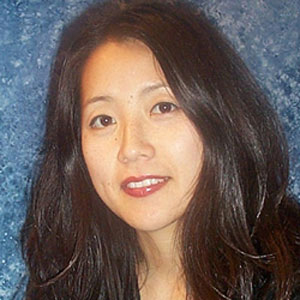Yun Suh is the director, writer and producer of “City of Borders,” a documentary set in the only gay bar in Jerusalem. The film chronicles the daily lives of the bar’s owner and four of its Palestinian and Israeli patrons as they struggle with personal and national identity.

“City of Borders” will be shown at 7 p.m. tonight in Textor 101, and Suh will speak with the audience after the screening.
Assistant Accent Editor Shea O’Meara spoke with Suh about her role in creating the “City of Borders” and the impact the film has made.
Shea O’Meara: What sparked your interest in filmmaking?
Yun Suh: I came to this country from South Korea when I was 8 years old without knowing a word of English, and television became my most important school in that it helped me understand American culture and language. I fell in love with visual storytelling at a young age and had this secret desire to be a filmmaker, but I didn’t have any role models when I was growing up in Connecticut and didn’t think it was a career option for me. So I studied to be a doctor when I went to college, and when my mom passed away my last year of college, it shifted my perspective and helped me think about what was really important in life, so I decided to pursue my dream.
SO: How did the idea for this documentary develop?
YS: I was working in broadcast journalism at the time, and I was covering the Palestinian-Israeli conflict and went to that region in 2001 to cover the Second Intifada and the uprising. My experience on the ground was very different from my understanding from the nightly news about the region, and I realized how much their lives are very much intertwined and the similarities between the two communities. At the height of the war, I had heard about gay nights at a straight bar where Israelis and Palestinians were organically coming together with their common experience of being persecuted on both sides and their need to connect. When I had an opportunity to tell a feature-length story, I decided to have this as my first story.
SO: How did working on this film impact your life?
YS: The people in the film are up against threats from their own community, their own family and their own friends, and have the courage to be true to themselves. I was in the in the San Francisco Bay Area, which is open and tolerant, but I wasn’t able to come out until I met the people in Israeli and Palestine and saw the incredible courage and the love there — it gave me the courage to come out.
SO: How have people reacted to the film?
YS: I’ve shown the film around the world in almost over a hundred film festivals. People from Italy or Romania or India often say that the struggle I depict in Israel and Palestine is something they’re dealing with in their own communities with intolerance. There are a couple of teens here in the States who have thanked me because the film gave them the courage to help them come out.
SO: What makes this film different from other films about the conflict?
YS: Oftentimes the images we see from that region are just religious fanatics, terrorist and so much anger and hatred. We don’t see the overwhelming love and laughter from the people there, which exists and which kind of represents them. So much emphasis is on their differences, which makes us all believe there is no hope in resolving the conflict when, in fact, there is so much more these two groups share. If the conversation focused on that, it would be a better start to resolving the conflict.







